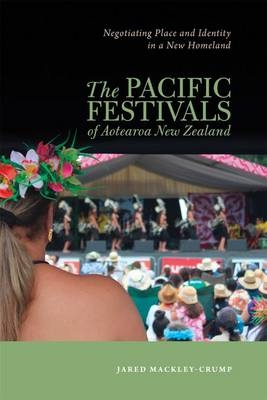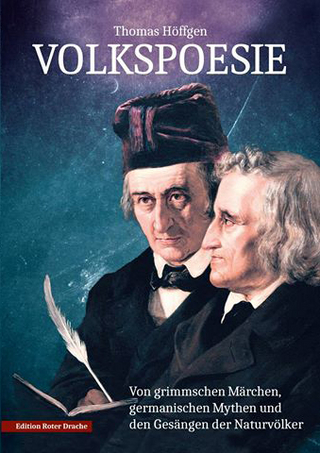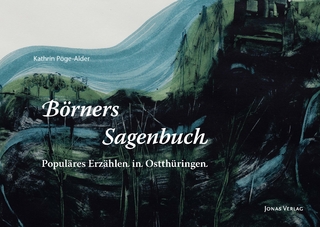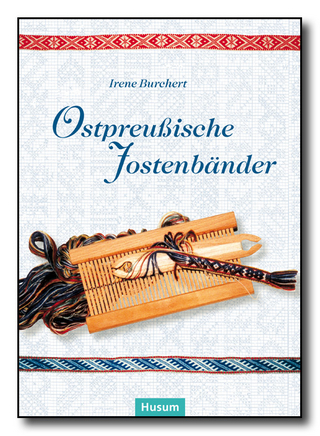
The Pacific Festivals of Aotearoa New Zealand
Negotiating Place and Identity in a New Homeland
Seiten
2015
University of Hawai'i Press (Verlag)
978-0-8248-3871-3 (ISBN)
University of Hawai'i Press (Verlag)
978-0-8248-3871-3 (ISBN)
The first study to trace the history and consider the significance of Pacific festivals in Aotearoa New Zealand. With a history now stretching back four decades, Mackley-Crump gives a provocative look at the changing demographics and cultural landscape of a country more readily viewed through a bicultural, Pakeha and Maori, lens.
Negotiating Place and Identity in a New Pacific Homeland is the first study to trace the history and consider the significance of Pacific festivals in Aotearoa New Zealand. With a history now stretching back four decades, Mackley-Crump gives a provocative look at the changing demographics and cultural landscape of a country more readily viewed through a bicultural, Pakeha and M?ori, lens. Pacific festivals assert a multicultural identity and firmly situate New Zealand within a sea of Pacific Islands.
Taking the post–World War II migrations of Pacific peoples to New Zealand as its starting point, the story begins in 1972 with the inaugural Polynesian Festival, an event that was primarily designed as a M?ori festival and is now known as Te Matatini, the largest M?ori performing arts event in the world. Two major moments of festivalization are considered: the birth of Polyfest, in 1976, and the inaugural Pasifika Festival of 1993. Both festivals began in Auckland, the home of the largest Pacific communities in New Zealand, and both have spawned a series of events that follow the models they successfully established. Where Polyfests focus primarily on the transmission of performance traditions from culture bearers to the young, largely New Zealand-born generations, Pasifika festivals are highly public community events, where diverse displays of material culture are offered up for consumption by both cultural tourists and Pacific communities alike. Both models of Pacific festival experienced a significant period of growth after the inaugural Pasifika Festival in 1993, and here, a thought-provoking and wide-ranging argument is presented to explain what has been called a ""Pacific renaissance.""
Written from an ethnomusicological perspective Negotiating Place and Identity incorporates vibrant first-person observations as well as interviews with festival organizers, performers, and other important historical figures. The second half of the book delves into the festival space, uncovering new meanings about the function and role of music performance and public festivity. The author directly challenges accounts that situate festivals as inauthentic (re)creations of culture for tourist audiences by situating festivals as meaningful and symbolic extensions of the ways diasporic Pacific communities operate in New Zealand. Pacific festivals are vital spaces for the negotiation of what it means to be a Pacific person living in twenty-first-century New Zealand.
Negotiating Place and Identity in a New Pacific Homeland is the first study to trace the history and consider the significance of Pacific festivals in Aotearoa New Zealand. With a history now stretching back four decades, Mackley-Crump gives a provocative look at the changing demographics and cultural landscape of a country more readily viewed through a bicultural, Pakeha and M?ori, lens. Pacific festivals assert a multicultural identity and firmly situate New Zealand within a sea of Pacific Islands.
Taking the post–World War II migrations of Pacific peoples to New Zealand as its starting point, the story begins in 1972 with the inaugural Polynesian Festival, an event that was primarily designed as a M?ori festival and is now known as Te Matatini, the largest M?ori performing arts event in the world. Two major moments of festivalization are considered: the birth of Polyfest, in 1976, and the inaugural Pasifika Festival of 1993. Both festivals began in Auckland, the home of the largest Pacific communities in New Zealand, and both have spawned a series of events that follow the models they successfully established. Where Polyfests focus primarily on the transmission of performance traditions from culture bearers to the young, largely New Zealand-born generations, Pasifika festivals are highly public community events, where diverse displays of material culture are offered up for consumption by both cultural tourists and Pacific communities alike. Both models of Pacific festival experienced a significant period of growth after the inaugural Pasifika Festival in 1993, and here, a thought-provoking and wide-ranging argument is presented to explain what has been called a ""Pacific renaissance.""
Written from an ethnomusicological perspective Negotiating Place and Identity incorporates vibrant first-person observations as well as interviews with festival organizers, performers, and other important historical figures. The second half of the book delves into the festival space, uncovering new meanings about the function and role of music performance and public festivity. The author directly challenges accounts that situate festivals as inauthentic (re)creations of culture for tourist audiences by situating festivals as meaningful and symbolic extensions of the ways diasporic Pacific communities operate in New Zealand. Pacific festivals are vital spaces for the negotiation of what it means to be a Pacific person living in twenty-first-century New Zealand.
Jared Mackley-Crump teaches at the Auckland University of Technology, New Zealand.
| Erscheint lt. Verlag | 30.6.2015 |
|---|---|
| Verlagsort | Honolulu, HI |
| Sprache | englisch |
| Maße | 152 x 229 mm |
| Gewicht | 494 g |
| Themenwelt | Sozialwissenschaften ► Ethnologie ► Volkskunde |
| Sozialwissenschaften ► Soziologie | |
| ISBN-10 | 0-8248-3871-8 / 0824838718 |
| ISBN-13 | 978-0-8248-3871-3 / 9780824838713 |
| Zustand | Neuware |
| Haben Sie eine Frage zum Produkt? |
Mehr entdecken
aus dem Bereich
aus dem Bereich
von grimmschen Märchen, germanischen Mythen und den Gesängen der …
Buch | Hardcover (2024)
Edition Roter Drache (Verlag)
16,00 €
populäres Erzählen in Ostthüringen
Buch | Hardcover (2024)
Jonas Verlag
24,00 €


